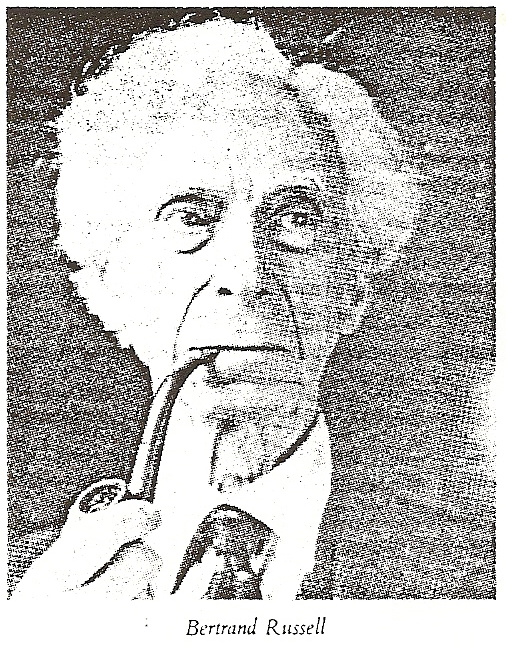want
Jim Watt around to jeopardize the same “geopolitical” (one-world) strategy of
resource monopolization that they are pursuing today:
If
a world government is to work smoothly, certain economic conditions will have to
be fulfilled. Various raw materials are essential to industry. Of these, at
present, oil is one of the most important. Probably uranium, though no longer
needed for purposes of war, will be essential for the industrial use of nuclear
energy. THERE IS NO JUSTIVE IN THE PRIVATE OWNERSHIP OF SUCH ESSENTIAL RAW
MATERIALS – AND I THINK WE MUST INCLUDE IN UNDESIRABLE OWNERSHIP, NOT ONLY THAT
BY INDIVIDUALS OR COMPANIES, BUT ALSO BY SEPARATE STATES. THE RAW MATERIALS
WITHOUT WHICH INDUSTRY IS IMPOSSIBLE SHOULD BELONG TO THE INTERNATIONAL
AUTHORITY AND GRANTED TO SEPARATE NATIONS.
Centralized monopolization and
control of world resources remains the dedicated goal of the aristocratic policy
making elite working through the networks and institutions we have identified.
In July, New York Times columnist
James “Scotty” Reston, an unabashed anglophile, echoed an earlier, June 30 piece
by Canadian columnist Gwynne Dyer, a member of the International Institute for
Strategic Studies (IISS). Dyer put it this way:
…it
came as a mild shock when J.F. Taylor, one of the leading historians of our age,
told me recently that he believes the only hope of avoiding a catastrophic world
war that would end civilization was for somebody to create a world
empire.
This
is heavy stuff, but unfortunately Taylor is largely right. A world of 150
sovereign states, all supporting military forces and accepting war as a normal
way of settling dispute, is doomed once it has access to weapons of mass
destruction… So long as there are separate states in the world, the eventual
collapse of civilization is inevitable.
Yet
those 150 sovereign states will not voluntarily abolish themselves. Almost
two-thirds of them are new since 1945, and their people are still entranced by
the heady delights of independence. Even the olde countries are still afflicted
with the disease of nationalism; indeed, being also the more industrialized
countries, they constitute the main present danger to everyone’s
survival…
The
old slogan of the 1950’s is still relevant: one world or none. (emphasis added,
Eds.)
The destruction of the
nation-state and the triumph of “one worldism” is the open aim of the Forces
grouped in and around the Council on Foreign Relations and its Trilateral
Commission. “Supranationalism” and “global interdependence” are their buzzwords
for this scheme.

A
CASE STUDY:
ROBERT O. ANDERSON’S ASPEN INSTITUTE
On the surface, Robert O. Anderson
appears to exemplify the independent entrepreneur. A former banker and
cattleman, Anderson rose from relative obscurity in the 1950’s to head what has
become the largest domestic oil producer and one of the world’s dominant natural
resource concerns, the Atlantic Richfield Corporation. With annual sales of $16
Billion, ARCO ranks number 7 among the majors in petroleum, number 1 in silver,
number 3 in copper and number 5 in aluminum.
Anderson is the largest individual
landowner in the U.S. Besides serving as the chairman of ARCO and the Aspen
Institute for Humanistic Studies, Anderson is a director of the Chase Manhattan
Bank, the Chase Manhattan Corporation, CBS, Inc., and Pan Am. A Republican Party
stalwart, Anderson served on the Republican National Committee from 1968-1972.
He is a trustee of the University of Chicago (his alma mater), and the
California Institute of Technology. He is also owner, as of 1976, of the British
newspaper the London Sunday Observor.
An all-American success story? Not
quite.
From his childhood in Chicago, where his father was with the First National Bank of Chicago, Robert O. Anderson was cultivated by the University of Chicago president Robert Maynard Hutchins, a self-proclaimed one-worlder and advocate of radical liberalism. From kindergarten through college Anderson was trained in special experimental schools run by the University of Chicago. With Katherine Meyer Graham of Newsweek Magazine and Senator Charles Percy, Robert O. Anderson was a graduate of the Hutchins curriculum, and Hutchins shaped Anderson’s outlook. This outlook demands resource monopolization and control. In 1968, drillers for Atlantic Richfield discovered the huge Prudhoe Bay oil field in Alaska. Virtually overnight ARCO was capitalized into the top ranks in domestic production. Only one year later, Robert O. Anderson contributed $200,000 in personal funds to launch the radical environmental group, Friends of The Earth. This organization wanted to lock up and prevent further development of resources. Ten years and several hundred million dollars later, the